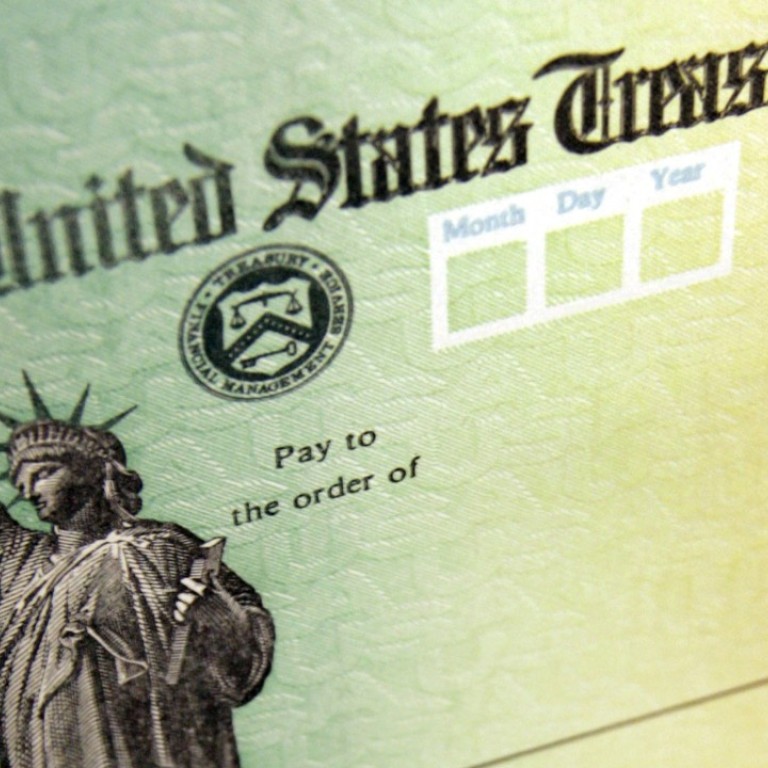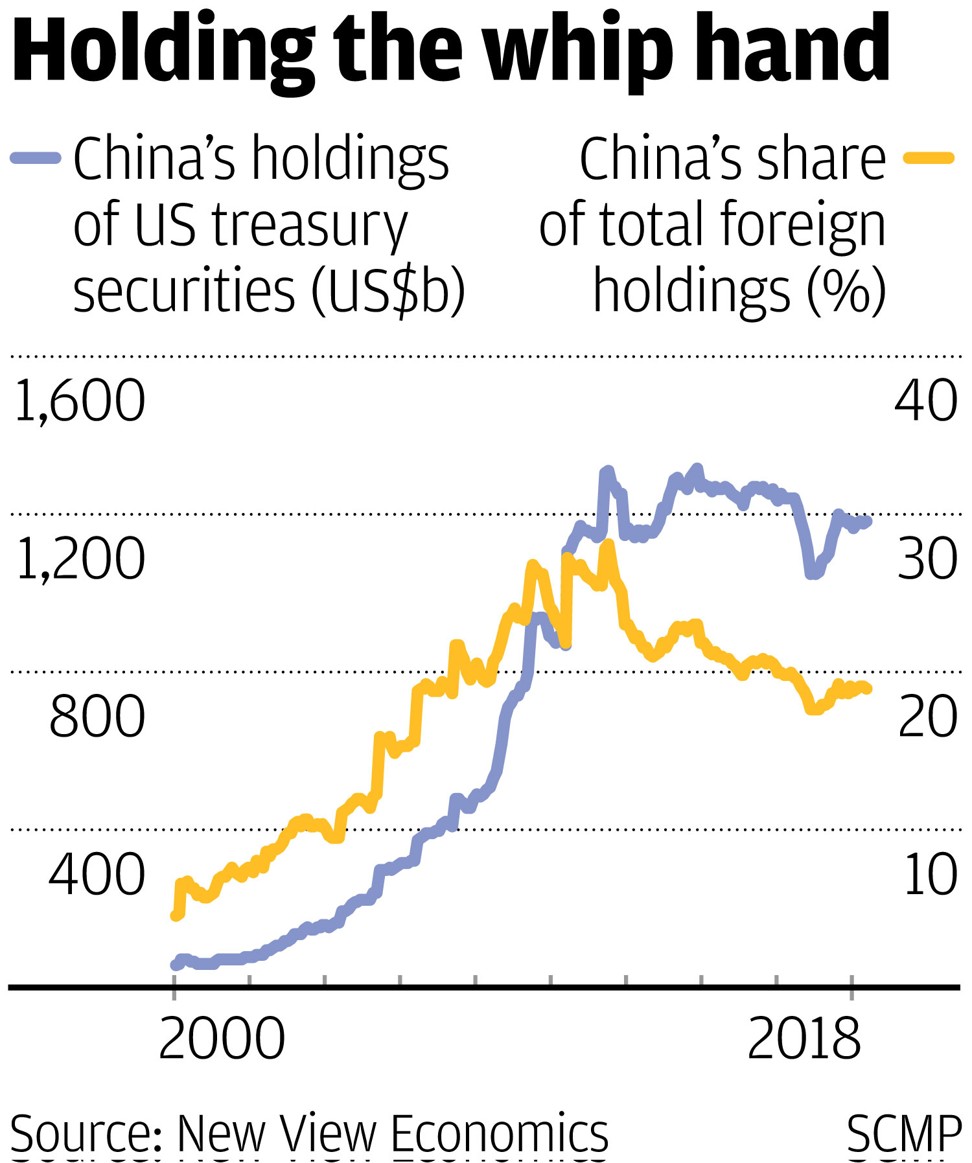
Should China play hardball in the trade war with Trump and start targeting US Treasuries?
David Brown says the US should be wary of what China chooses to do with its US$1.2 trillion dollars in Treasury securities. Based on the impact of Russia dumping its much smaller holdings earlier this year, a similar move by Beijing could play havoc with the American economy
If Beijing wants to tighten the screws on America, this would be the prime opportunity. A buying strike or aggressive dumping of US Treasuries back into the market would pose double trouble for Washington, forcing US bond yields even higher and ramping up US dollar demand in the process. It should give more leverage to Beijing’s tacit devaluation tactics and cause wider scattergun carnage to the US economy at the same time.
Watch: Trade war affects Trump merchandise made in China
Higher Treasury yields will increase long-term borrowing costs, load US consumers with higher mortgage costs, slow the housing market and dent retail confidence and spending all at the same time. US companies will be hit with higher financing costs for new investment, adding a further drag on the US economy. The stronger dollar is already dulling the outlook for US exporters.
Beijing clearly holds the whip hand as one of the dominant investors in the US Treasury market. According to official figures for May, China held up to US$1.2 trillion dollars in Treasury securities, accounting for close to 20 per cent of all foreign holdings of US Treasury debt. Off-loading just a small part of its US government investments or embargoing future auctions could have a significant effect on market confidence, pushing US bond yields sharply higher in the process.
If China took the cudgel to the US Treasury market, the effects would be devastating. Even a small Treasury market intervention by Beijing could have a catastrophic effect on confidence, pushing an already fragile market further onto the back foot. Ten-year US Treasury yields could gain a foothold above 3 per cent and target decade-old highs in the 3.5 to 4 per cent range quite soon.
Playing the Treasury market wild card would be a dangerous game but could yield quick results.
David Brown is chief executive of New View Economics


